About JAXA's Astronauts

|
There are currently 7 astronauts at JAXA. From August 2023 to March 2024, JAXA Astronaut FURUKAWA Satoshi flew with SpaceX Dragon spacecraft as a member of Crew-7 and completed the ISS Expedition 69/70. During his 197-day stay on the ISS, he conducted various experiments to improve life on Earth by utilizing microgravity at Japanese Experiment Module “Kibo”. He also demonstrated technologies which contribute to future International Space Exploration, the Moon, Mars and beyond. In 2025, JAXA Astronaut YUI Kimiya and JAXA Astronaut ONISHI Takuya are scheduled to serve long-term missions on the ISS. JAXA Astronaut YONEDA Ayu and JAXA Astronaut SUWA Makoto, who were certified as JAXA Astronauts in October 2024, are currently undergoing pre-assignment training to acquire the skills necessary for their mission assignments. |
|---|
Press Release
index-
- Jan. 15, 2026 (20:00) [release]
- Return of Crew Dragon Spacecraft (Crew-11) with JAXA Astronaut YUI Kimiya
-
- Jan. 10, 2026 (15:30) [release]
- Target Dates and Times for ISS Departure and Return of Crew Dragon Spacecraft (Crew-11) including JAXA Astronaut YUI Kimiya
Astronauts' Tasks
JAXA astronauts have been contributing to the ISS project through assembly work of the ISS and the Kibo, the Japanese Experiment Module, and have accumulated experience and knowledge. By utilizing these skills, the astronauts mainly perform the following tasks while they stay at the ISS.
Experiments and research
Space experiments utilizing the environment that is different from Earth such as microgravity and high
vacuum.
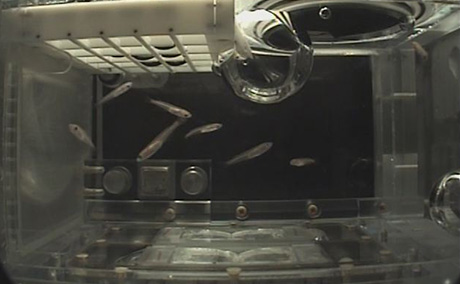
Operation and maintenance of ISS and Kibo
Maintaining the ISS systems including those for electricity, communications, environment control, and experiment support. Repairing and maintaining the ISS.
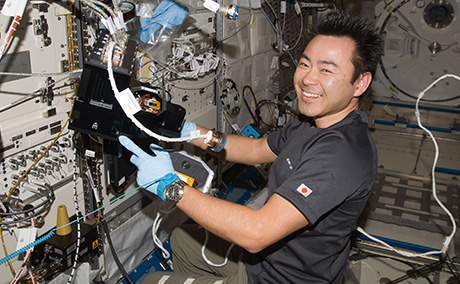
Robotic arm operation
Using the ISS and Kibo robotic arms, installation, exchange and repair of experiment instruments and test materials are conducted. The arms are also used for capturing rendezvous and berth type spacecrafts such as the KOUNOTORI and Cygnus.
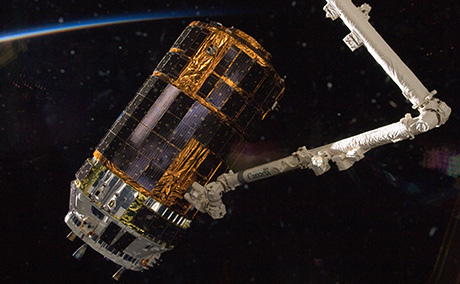
Extravehicular activities (with space suit on)
To carry out some repair and maintenance work on the ISS as well as experiments that cannot be conducted by a robotic arm.
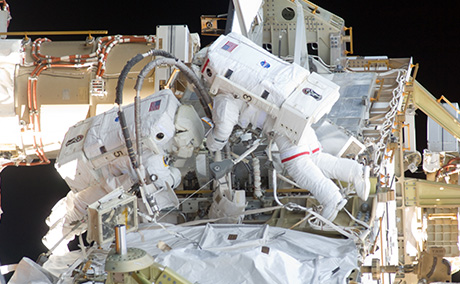
How to Become an Astronaut
Selection of Astronaut Candidates
|
Needless to say, astronauts need to have expert knowledge of science and technology. In addition, they are required to be fluent in English, in order to communicate with astronauts from different countries who live and work with them. Astronauts have been selected based on the screening of application documents; a series of written exams on the English language, general and specialized knowledge of natural science, interviews, and medical and psychological examinations. |
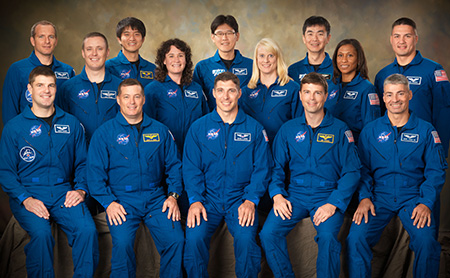 |
|---|
Training of Astronaut
|
After being selected, astronaut candidates undergo Basic Training. They obtain basic knowledge and
technical skills in space engineering, space science, space medicine, the Space Shuttle and ISS systems,
the English and Russian languages. They also receive flight training and physical training. Upon
completion of Basic Training, they are officially certified as astronauts and receive more advanced
training in the operation of spacecraft systems and experimental equipment, as well as training to work in
space. They also continue with language instruction, flight training, and physical training. |
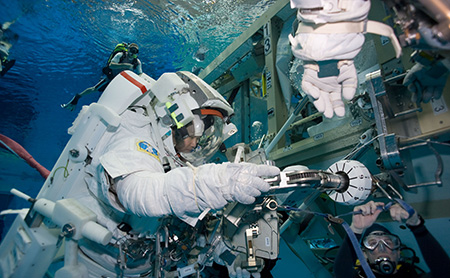 |
|---|
Summary of Japan-related missions and flight results
Contents

- July 23, 2012
- Showing a Bright Future from Space
Akihiko Hoshide

- March 30, 2011
- A Doctor Looks Forward to Working in Space
Satoshi Furukawa

- Nov. 20, 2009
- First Extended Stay in Space by a Japanese Astronaut

- Jul. 11, 2008
- Moving Toward a New Era of Manned Space Activities

- July 5, 2005
- Supporting the Return-to-flight
Koichi Wakata

- August 10, 2004
- Training progresses to next stage
Satoshi Furukawa

- February 16, 2004
- One year since the Columbia accident
Koichi Wakata






